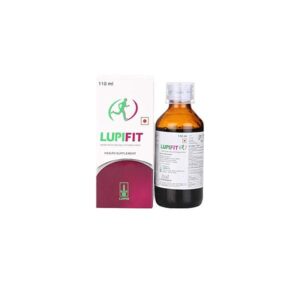L-HISTIDINE + L-LYSINE + VITAMIN C
L-Histidine: L-Histidine is an essential amino acid that is used as a dietary supplement. It is often found in protein-rich foods like meat, fish, and dairy products. L-Histidine is important for the growth and repair of tissues, the production of red and white blood cells, and the synthesis of various biochemicals in the body.
In the body, L-Histidine is converted into histamine, a neurotransmitter that plays a vital role in immune response, digestion, and sleep-wake cycles. L-Histidine also acts as a precursor for other important compounds like carnosine, which has antioxidant and anti-aging properties.
As a supplement, L-Histidine is sometimes used to treat certain medical conditions like rheumatoid arthritis, allergies, and ulcers. Its mechanism of action is believed to involve the regulation of immune responses and the reduction of inflammation.
The typical dose of L-Histidine varies depending on the individual’s age, health condition, and the reason for taking it. It is usually available in capsule or powder form. It is important to follow the recommended dosage provided by the manufacturer or consult with a healthcare professional for the appropriate dosage.
L-Histidine is generally considered safe when taken at appropriate doses. However, some people may experience mild side effects such as nausea, diarrhea, and stomach discomfort. High doses of L-Histidine may lead to a temporary drop in blood pressure, dizziness, and headache. It is important to note that individuals with certain medical conditions, such as histamine intolerance or kidney disease, should take caution when using L-Histidine and consult with their healthcare provider before starting supplementation.
L-Lysine: L-Lysine is an essential amino acid that is commonly used as a dietary supplement. It plays a crucial role in protein synthesis and is necessary for the growth and maintenance of various tissues in the body. L-Lysine is not produced naturally in the body, so it must be obtained through diet or supplementation.
The main use of L-Lysine is for the prevention and treatment of herpes simplex virus (HSV) infections, including cold sores (oral herpes) and genital herpes. L-Lysine has been found to inhibit the replication of HSV by interfering with the virus’s ability to use arginine, another amino acid, for growth.
The recommended dose of L-Lysine for the treatment of herpes simplex infections in adults is usually 1000-3000 mg per day, divided into several doses. For prevention, a lower dose of 1000-1500 mg per day is typically used.
L-Lysine is generally well-tolerated, and side effects are rare. However, some individuals may experience gastrointestinal side effects such as abdominal pain, diarrhea, or nausea. In very high doses, L-Lysine may also cause kidney problems, although this is extremely uncommon.
It is important to note that L-Lysine supplementation may interact with certain medications or conditions. It may increase the absorption of calcium, so people with kidney or liver disease, as well as those with calcium metabolism disorders, should use caution and consult with a healthcare professional before taking L-Lysine.
As with any medication or supplement, it is advisable to consult with a healthcare professional before starting L-Lysine to ensure its appropriate use and to minimize any potential risks or interactions.
Vitamin C: Drug: Vitamin C
Use: Vitamin C, also known as ascorbic acid, is a dietary supplement that is used to help prevent or treat vitamin C deficiency. It is also used as an antioxidant to protect the body against free radical damage.
Mechanism of action: Vitamin C plays a vital role in various biological processes. It is an essential nutrient for collagen synthesis, which is important for wound healing, maintenance of healthy skin, blood vessels, bones, and cartilage. It also enhances the absorption of iron from plant-based sources in the intestines and helps in the synthesis of neurotransmitters such as serotonin and norepinephrine.
Dose: The recommended daily allowance of vitamin C varies depending on age, gender, and specific health conditions. For adults, the recommended daily intake is generally between 65 to 90 milligrams (mg). However, in certain cases such as during pregnancy or illness, higher doses may be required under medical supervision.
Side effects: Vitamin C is generally considered safe and well-tolerated when taken orally within the recommended dosage. However, consuming extremely high doses (exceeding 2000 mg per day) can lead to digestive disturbances such as diarrhea, stomach cramps, and nausea. In rare cases, excessive vitamin C intake may also cause kidney stones or interfere with certain laboratory test results. Individuals with a history of kidney stones or certain conditions such as hemochromatosis should exercise caution and consult a healthcare professional before taking high doses of vitamin C.

